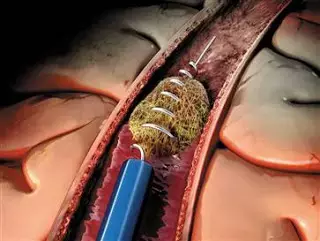- Home
- Medical news & Guidelines
- Anesthesiology
- Cardiology and CTVS
- Critical Care
- Dentistry
- Dermatology
- Diabetes and Endocrinology
- ENT
- Gastroenterology
- Medicine
- Nephrology
- Neurology
- Obstretics-Gynaecology
- Oncology
- Ophthalmology
- Orthopaedics
- Pediatrics-Neonatology
- Psychiatry
- Pulmonology
- Radiology
- Surgery
- Urology
- Laboratory Medicine
- Diet
- Nursing
- Paramedical
- Physiotherapy
- Health news
- Fact Check
- Bone Health Fact Check
- Brain Health Fact Check
- Cancer Related Fact Check
- Child Care Fact Check
- Dental and oral health fact check
- Diabetes and metabolic health fact check
- Diet and Nutrition Fact Check
- Eye and ENT Care Fact Check
- Fitness fact check
- Gut health fact check
- Heart health fact check
- Kidney health fact check
- Medical education fact check
- Men's health fact check
- Respiratory fact check
- Skin and hair care fact check
- Vaccine and Immunization fact check
- Women's health fact check
- AYUSH
- State News
- Andaman and Nicobar Islands
- Andhra Pradesh
- Arunachal Pradesh
- Assam
- Bihar
- Chandigarh
- Chattisgarh
- Dadra and Nagar Haveli
- Daman and Diu
- Delhi
- Goa
- Gujarat
- Haryana
- Himachal Pradesh
- Jammu & Kashmir
- Jharkhand
- Karnataka
- Kerala
- Ladakh
- Lakshadweep
- Madhya Pradesh
- Maharashtra
- Manipur
- Meghalaya
- Mizoram
- Nagaland
- Odisha
- Puducherry
- Punjab
- Rajasthan
- Sikkim
- Tamil Nadu
- Telangana
- Tripura
- Uttar Pradesh
- Uttrakhand
- West Bengal
- Medical Education
- Industry
Basilar Artery Thrombectomy Within 9 hrs Is Linked With Better Outcomes in Stroke Patients

Basilar artery occlusion (BAO) has long been recognized as an acute stroke syndrome with a poor prognosis. In a recent study, researchers reinforced that earlier treatment was associated with more favourable outcomes in patients with BAO. In other words, a longer time to treatment seems to have correlated with a higher risk of bleeding. The study findings were updated and published in the journal Neurology on November 30, 2021.
Faster time from onset to puncture (OPT) using endovascular therapy (EVT) in acute large-vessel occlusion of anterior circulation has been associated with better clinical outcomes. However, the relationship in acute basilar artery occlusion (BAO) is still not well delineated. Therefore, Dr Hong Fei Sang and his team conducted a study to characterize the association of onset to puncture time with clinical outcomes among patients with acute basilar artery occlusion receiving EVT in clinical practice.
The researchers analyzed 639 acute BAO patients receiving EVT from a nationwide registry of BASILAR (Endovascular Treatment for Acute Basilar Artery Occlusion study). The major outcome assessed was the favourable functional outcome (defined as modified Rankin Scale score 0-3) at 90 days. They also assessed functional independence (mRS 0–2), mortality, and symptomatic intracerebral haemorrhage.
Key findings of the study:
- Upon analysis, the researchers found that the treatment within 4–8 hours and 8–12 hours was associated with lower rates of favourable outcome (adjusted odds ratio, 0.63 and 0.47, respectively) compared with treatment within 4 hours.
- Upon restricted cubic spline regression analysis, they found that the OPT had L-shaped associations with favourable outcome and functional independence, with significant benefit loss throughout the first 9 hours, but noted that it appeared relatively flat.
- They noted that the odds of mortality increased relatively for OPT up to 9 hours but then levelled off.
- They observed no significant association between symptomatic intracerebral haemorrhage and OPT.
In short, the quicker a stroke is diagnosed and treated, the better recovery typically goes, and the more likely the person is to have a greater return of neurologic function.
The authors concluded, "Among patients with acute basilar artery occlusion in routine practice, earlier treatment with EVT was associated with better outcomes throughout the first 9 hours after onset, but the benefit may sustain unchanged afterwards."
For further information:
Medical Dialogues Bureau consists of a team of passionate medical/scientific writers, led by doctors and healthcare researchers. Our team efforts to bring you updated and timely news about the important happenings of the medical and healthcare sector. Our editorial team can be reached at editorial@medicaldialogues.in.
Dr Kamal Kant Kohli-MBBS, DTCD- a chest specialist with more than 30 years of practice and a flair for writing clinical articles, Dr Kamal Kant Kohli joined Medical Dialogues as a Chief Editor of Medical News. Besides writing articles, as an editor, he proofreads and verifies all the medical content published on Medical Dialogues including those coming from journals, studies,medical conferences,guidelines etc. Email: drkohli@medicaldialogues.in. Contact no. 011-43720751


